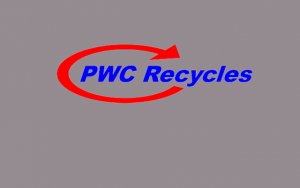 Immediate Changes to Recycling in the County
Immediate Changes to Recycling in the County
By Prince William County Government
Recycling is changing around the world, and those changes are impacting recycling in Prince William County. Effective immediately, Prince William County is asking residents and refuse haulers to eliminate glass and some plastic containers from curbside recycling collection.
Tom Smith, Prince William County Public Works Solid Waste Division Chief, recently described the rationale for the changes to the Board of County Supervisors, explaining that China, the largest importer of recyclable material, has stopped accepting certain types of scrap plastics and waste paper. The waste import restrictions imposed by China and other countries are having a significant impact on the processing of recyclables worldwide which is why you learn to manage waste materials better. "You're paying more now to process recycling than you are to dispose of waste in the landfill or waste energy facility. It's created a burden on our local haulers, who are facing increased costs," said Smith.
Currently, glass placed in the recycling bin is not recycled. Most of it eventually ends up in the landfill after going through the local recycling processing facility, also known as a Material Recovery Facility, or MRF. Although container glass is recyclable, it requires additional cleaning and preparation at a special glass processing/beneficiation plant to make it marketable. There are no glass beneficiation plants in the metropolitan region or anywhere in Virginia; and the weight of glass makes transportation cost prohibitive. The removal of glass will help reduce the financial strain of rising processing costs local trash and recycling haulers experience since hauling companies pay processing costs at MRFs by weight. With glass not being recycled, haulers will no longer have this expense.
However, plans are under way for the county to provide an alternative option for residents who want to recycle glass, Smith said. In mid- to late-April, the Solid Waste Division will have BIN Drop at the Prince William County Landfill, 14811 Dumfries Road, and the Balls Ford Road Compost Facility, 13000 Balls Ford Road. The glass at these two locations will be sent to a local crushing plant and will be used in construction projects.
The county, in cooperation with local trash and recycling collection companies and local MRF operators, also agreed to remove plastic containers and tubs (#3-#7) from the recycling requirement. Contamination standards and the close of the Asian export markets for these plastics has resulted in increased processing cost and limited to non-existent markets for this material. As a result, this material also makes it way to the landfill as residue, which is non-recyclable material from the MRFs.
Residue is also created by contamination. Dirty recyclables, garbage (diapers, food, etc.) and "aspirational recycling," which refers to putting unrecyclable items in the bin with good intentions that they will be recycled, all contribute to contamination and increase the cost of processing at MRFs. The percentage of residue has increased from approximately 8 percent a few years ago to nearly 30 percent in 2018 at the Prince William County Landfill.
Even though glass and some plastics have been removed from the required recycling list, many other materials remain. Residents and business should continue to recycle cardboard, clean paper, plastic bottles and jugs (#1 and #2) and aluminum and steel cans. To avoid contamination, all materials placed in recycling containers should be empty, clean, dry and loose. Do not place items in a plastic bag and do not put plastic bags in regular recycling bins for recycling. Plastic bags can be taken to grocery stores and other retailers where there are recycling bins designated for plastic bags, Smith said.
Smith also highlighted the special attention needed for items like florescent bulbs, electronics and batteries. These items can be recycled, but require special handling and should never be placed in the regular recycling container. They can be brought to the county's solid waste facilities for proper disposal.
Smith told the board that the landfill receives about 1,200 tons of trash daily, and he noted, "The first level of defense is reduce the amount of waste you generate. We want to encourage everyone to reduce the amount of waste generated."
As an example of reducing waste, Smith recounted a recent conversation he had about recycling with a resident. The resident told Smith that he and his wife stopped using paper plates because they cannot be recycled. They also starting using refillable water bottles and filtered tap water to reduce their use of single use water bottles.
Other helpful waste reduction practices include purchasing items in containers and packaging that can be recycled locally, like beverages in cans versus glass bottles. Eliminating junk mail and using reusable shopping bags can also help.
Smith said that the Solid Waste Division will continue to work with local trash and recycling collection companies and MRF operators to help communicate changes and best practices for recycling and waste disposal in Prince William County.
For more information about trash and recycling in the county, visit pwcgov.org/trashandrecycling.
Support Bristow Beat - Donate Today!